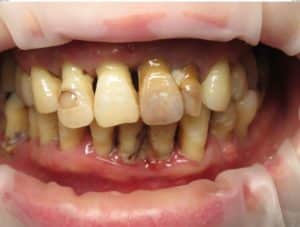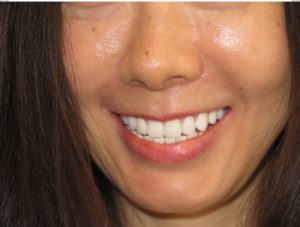WHAT IS FULL MOUTH RESTORATION?

Full mouth restoration is a set of general or reconstructive dentistry procedures performed together to completely transform the smile including replacing missing teeth, repairing damaged teeth, and correcting jaw alignment. This gives the smile an enhanced and more perfect appearance.
A full restoration involves reconstructing all of the teeth in both the upper and lower jaws through the use of restorative materials like crowns, bridges, veneers, dentures, and implants. Full mouth reconstruction can be a necessary treatment to preserve the patient’s oral health and overall appearance of their teeth.







